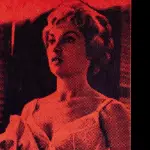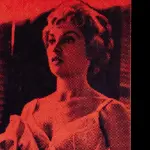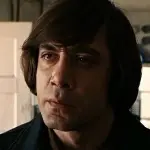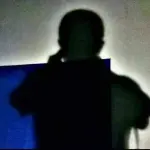"Chungking Express" is a 1997 film directed by Wong Kar-wai, a renowned Hong Kong filmmaker known for his poetic and visually stunning works. The film is a part of his trilogy of films set in Hong Kong, the other two being "Days of Being Wild" and “In the Mood for Love.” During a screening of "Chungking Express," Quentin Tarantino admitted to the audience that he couldn't help but shed tears while watching it. However, his tears weren't because the film was sad. Instead, he explained that he was overwhelmed with joy. "I'm just so happy to love a movie this much.”

Loneliness and estrangement between people are the enduring themes of Wong Kar-wai's films. Most of his characters are trapped by their past, unable to see their future, and incapable of seizing the present. Whether it's Li Yaohui and He Baorong, who both love and hate each other in "Happy Together," or Chow Muyun and Su Lizhen, who are imprisoned by their emotions and the societal expectations placed upon them in "In The Mood for Love," they are all ordinary individuals, even those at society's margins, yet they all share authentic joys, sorrows, and similar dilemmas. Similarly, "Chungking Express" adheres to this pattern.
The film is composed of two stories that follow two pairs of dejected men and women who seek to break free from their past relationships and start anew, portraying the two emotional states of urban dwellers: loneliness and feeling lost. Let's delve deeper into each story.
Lost
The first story centers around the theme of being "lost". Director Wong Kar-wai employs frequent use of "shaky shots" to convey both the chaos of the environment and the characters' internal turmoil. He Zhiwu and the woman with the blond wig constantly traverse through the crowds, anxiously searching and running, akin to two lost individuals in an urban jungle desperately seeking a way out. Both of them more or less suffer from borderline personality disorder. Their entire life revolves around their romantic relationship, and when it ends, they become lost.

They become lost, because of their naivety, because of their lack of security, and because the romantic relationship they hold on to is not there anymore. He Zhiwu refuses to accept the fact that his girlfriend has left him. He continues to wait for her daily at the small shop she used to frequent, harasses her family through incessant phone calls, and misinterprets every incoming call as a deliberate attempt by his girlfriend. As time passes, he becomes increasingly erratic and neurotic.
In an alternate timeline, the woman with the blond wig is similarly trapped in a romantic relationship. She sprints, hunts, and eliminates in order to survive, not only for her life but also for the sake of her lost love. Her love interest is a white man who frequents a bar (the "bar man"). Wong Kar-wai depicts their relationship in an enigmatic manner, but we can infer some clues from two details. The first is that the bar man flirts with a waitress, who willingly dons a golden wig before they become intimate. The second is that the bar man sends the waitress out to buy cigarettes, but she returns empty-handed due to heavy rain. Do you see the significance of the woman's unchanging golden wig and yellow raincoat now?

Indeed, Wong Kar-wai implies that this woman wears the golden wig and the raincoat all the time to please the bar man. She says, "I don't know when I became so cautious. Whenever I wear a raincoat, I put on sunglasses because you never know when it will rain or when the sun will come out." Her appearance implies her lost identity. She suffers from a serious borderline identity disorder. She’s lost to please his man. She wants to satisfy his man's every need, at any time. She is even willing to endanger her life to help the bar man smuggle drugs…. But when things go astray, what does she get in return? Not only being replaced by another woman but also a death notice from the man she loves.
However, just like the most significant prop in this story, the "can," reveals two traits that make love despairing: people's preference change and love always has a deadline. You cannot expect love to remain forever untainted as He Zhiwu did. Nor can you go as far as the woman with the blond wig did, wearing a wig today, a raincoat tomorrow, and risking your life the day after to satisfy a man's capriciousness.

These two lost souls eventually meet in a bar. That night, nothing happened between them. She fell asleep, and he watched Hong Kong dramas and ate salad by her side. They offer each other the simplest comfort. Afterward, Ho Zhiwu decides to bid farewell to his past. He runs in the rain, a ritual he must complete after a breakup. And she gives He Zhiwu his first birthday greeting on his 25th birthday. The woman with the blond wig sets up a trap for the bar man and shot him in an alley. Then, she turned around, elegantly removed her golden wig, and reverted to her true self.
Loneliness
The second story centers on the concept of solitude and presents a completely distinct visual approach from the first story. While the first story employs a "shaky camera" technique in an expansive setting, the second story features a condensed space with a mainly still camera to portray the idea that individuals exist within their own personal space, disconnected from the rest of the world, conveying a sense of loneliness.
Wong Kar-wai also uses the contrast between stillness and motion to depict inner loneliness. One scene shows Cop 633 slowly putting a coin into the jukebox while people around him quickly flash by.

The world seems too fast for the lost soul. Cop 633 in the foreground seems totally separated from the people passing through in the background. He seems out of place compared to the world around him. There’s no connection between him and the world around him. Lonely people seem trapped, as time appears to slow down and become difficult to pass. Moreover, it generates a surreal atmosphere that allows the audience to deeply empathize with the character and share their emotions and experiences of life, as well as their feelings of pain and loneliness.

Loneliness is also depicted as being immersed in past sorrows and ignoring the present. After his flight attendant girlfriend leaves him, Cop 633 is trapped in his memories and starts talking to every object in the room, which is actually a soliloquy to himself. Fei is a waitress at a small shop that Cop 633 often visits, and she falls in love with this destitute and melancholic man. Fei's favorite song is "California Dreaming," which tells the story of a person walking in winter and missing the sunshine of California, a yearning for warmth in the world.

To drown out the sounds of the world around her, Fei always turns up the music and hides in her own world. She maintains a distance from others and rejects the establishment of any intimate relationship. Even though she falls in love with Cop 633, Fei's insecurity makes her hide her feelings and secretly try to help Cop 633 to go through his sadness by tidying his house. When 633 is not at home, she sneaks into his place and replaces all the things related to bad memories. She wants to help him get out of his sad memories. But Cop 633 is deeply lost in his world, he couldn’t notice any changes at his house.
Both 633 and Fei are trapped, but with Fei's secret and careful care, 633 eventually comes out of the shadow of his past. One day, he stumbled upon Fei at home. Upon hearing her scream, she darted out the door, taking all his thoughts with her. At that moment, 633 realizes what he had missed during their muddled time together.

Fei wants to care for him but she doesn’t want him to know, because she’s afraid. Afraid that she’s not good enough for him, afraid that even the relationship begins, she’s just a replacement for his lost love. Fei chose to leave for California, hoping to give their relationship a concrete timeline. A year later, she returns as a flight attendant. If 633 couldn't move on from the past, she’s willing to become that past. 633 also leaves his job, takes over the small shop where Fei had worked, and bids farewell to the past, embracing a new life.
These two lonely souls boldly take a step forward, drawing them closer to each other. Finally, Fei picks up a pen and paper to sketch out a plane ticket for 633, asking, "Where do you want to go?" 633 smiles at her and replies, "Anywhere. I'll go wherever you want to go."

The Urban Jungle
"Chungking Express" is named after its filming location in the Chungking Mansion in Hong Kong. The building is home to over 5,000 people of various ethnicities from more than 100 countries, making it a microcosm of the world. Every day, people from all walks of life come and go, brushing past each other, nodding, smiling, or simply remaining silent.
The Chinese title of "Chungking Express" is "Chungking Forest." The film addresses that even though people live in a metropolis full of human beings, they feel the same anxiety, lost, and loneliness as our ancestors living in the jungle. The modern city is just an urban jungle.
"Chungking Express" also explores the idea of the fleeting nature of relationships and the difficulty of connecting with others in a city as fast-paced and chaotic as Hong Kong. In the city, emotions between people are increasingly estranged, and even the most intimate relationship may totally collapse before you get a chance to realize it. The film suggests that even though people may come and go in our lives, the memories and experiences we share with them can have a lasting impact on us.
Another important theme of the film is the idea of chance encounters and missed opportunities. The film suggests that the course of our lives can be altered by the smallest of moments. The film also explores the idea that our lives are shaped not just by our own decisions, but also by the actions and choices of those around us. Dwelling on past sorrows while the present passes by can lead to missed opportunities. In order to overcome feelings of loneliness and past sorrows, one must learn to fully embrace the present moment. The silver lining is that it's never too late to recognize this. Avoid being trapped in the past, isolated in your own world, and oblivious to the rest of the world. You never know who’s the next person you encounter at a bar or bump into accidentally. They could be as close as 0.01 centimeters away, and in just 57 hours, you could fall madly in love with each other.
"Chungking Express" aims to remind us that, as the film's opening line says, "every day you have the chance to brush past many people, whom you may not know anything about, but who might one day become your friend or confidant."


























































Share your thoughts!
Be the first to start the conversation.